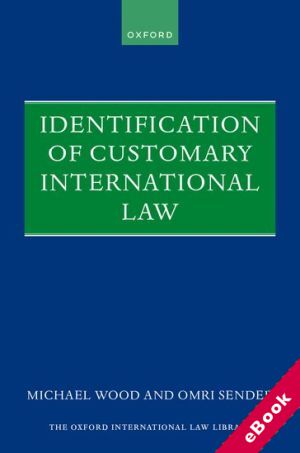
The device(s) you use to access the eBook content must be authorized with an Adobe ID before you download the product otherwise it will fail to register correctly.
For further information see https://www.wildy.com/ebook-formats
Once the order is confirmed an automated e-mail will be sent to you to allow you to download the eBook.
All eBooks are supplied firm sale and cannot be returned. If you believe there is a fault with your eBook then contact us on ebooks@wildy.com and we will help in resolving the issue. This does not affect your statutory rights.
Customary international law remains a central source of international law and the core of the international legal system. It continues to draw the attention of lawyers, especially at a time marked by the great expansion of international law and its increasing application in domestic and international courts. Determining whether an applicable rule of customary international law exists is therefore of great practical concern - but this important legal task is not always simple or straightforward.
This book serves as guidance to those seeking to determine the existence of rules of customary international law and their content. It elaborates on the methodology for the identification of rules of customary international law and examines a host of questions concerning the process and evidence at issue. It does so by complementing the authoritative work of the UN International Law Commission on this topic, and by drawing upon a wealth of additional practice and writings.
Identification of Customary International Law provides an overview of the Commission's work and expands on it by addressing the nature and history of custom as a source of international law, inquiring into each of the two constituent elements of customary international law (namely, a general practice and opinio juris), explaining the value and limits of certain forms of evidence, and throwing further light on such issues as the persistent objector rule and particular customary international law. Practitioners and scholars alike will find this detailed treatment useful in seeking to determine the existence and content of any customary rule and in ensuring that arguments about customary international law are persuasive.